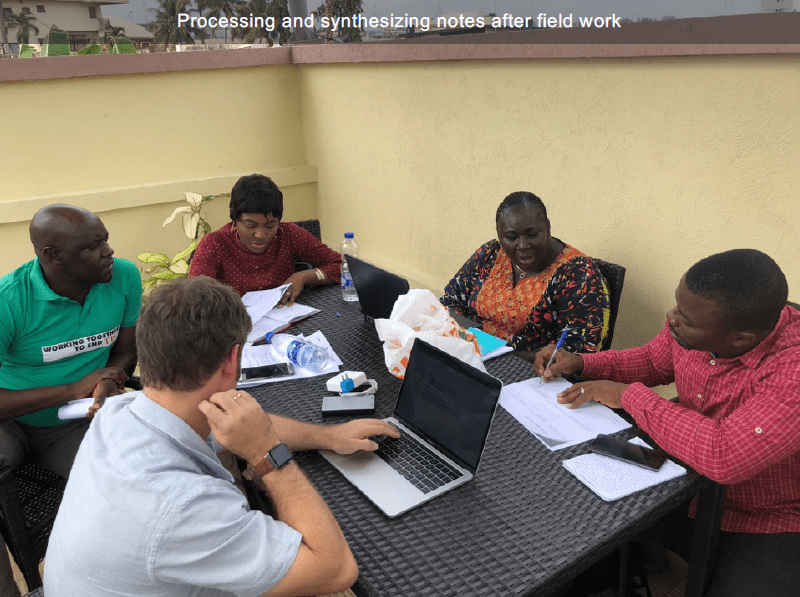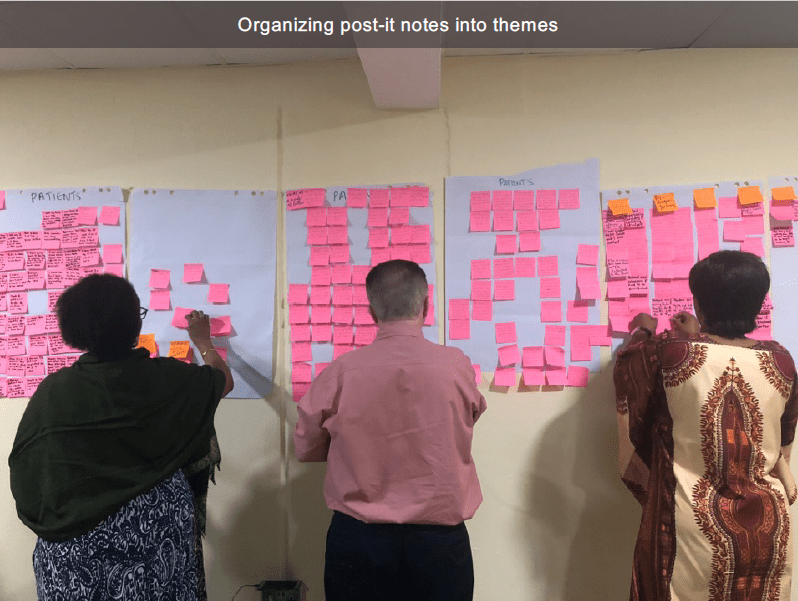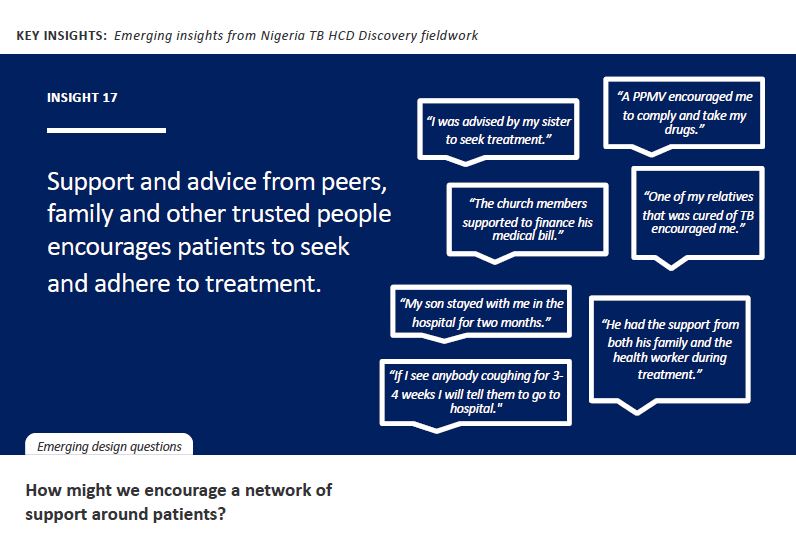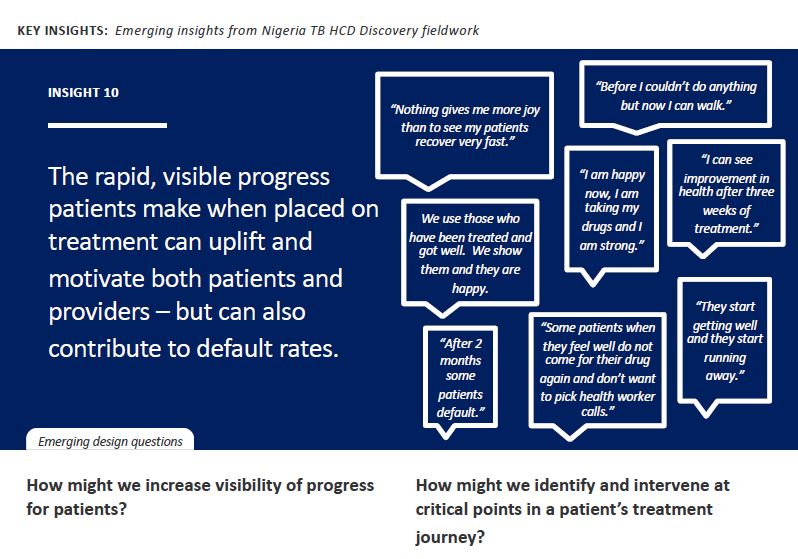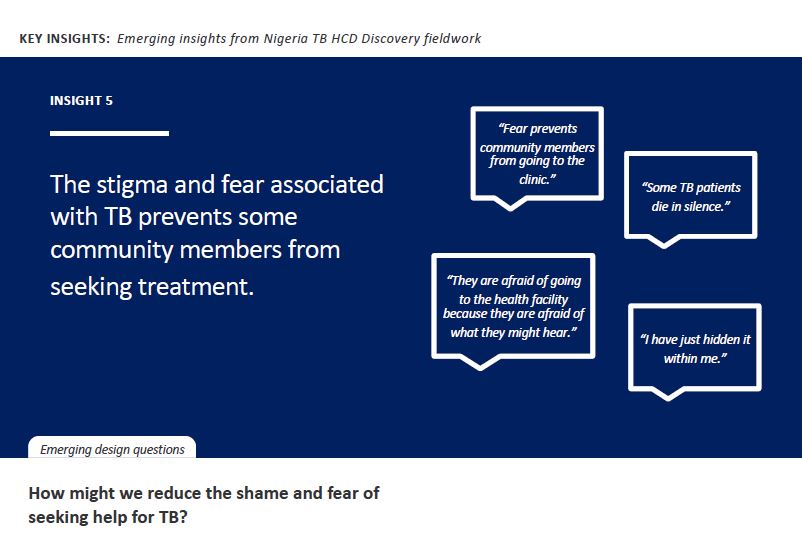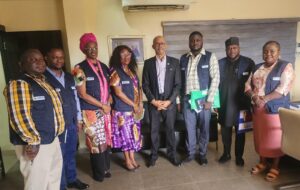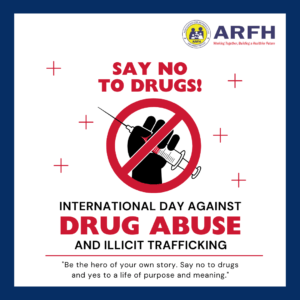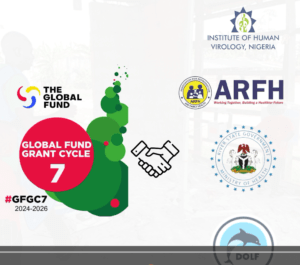
As part of the ACSM (Advocacy, Communication and Social Mobilization) activities of the national TB programme in Nigeria, the National Tuberculosis and Leprosy Control Programme (NTBLCP) in collaboration with the Breakthrough ACTION (BA), a USAID-funded Project is carrying out a formative research in four States (Lagos, Rivers, Enugu and Kano) using Human-Centred Design (HCD) methodology to increase TB case detection in Nigeria. The research was supported by ARFH, KNCV, StopTB Nigeria, SHOPSPLUS, TBNetwork and other national TB implementing stakeholders.
Part of the objective of the study was to conduct a qualitative research with key populations to gain deeper insights into the social, cultural barriers and facilitators to TB-related behaviors, and to provide a systematic process to collaboratively apply these newly gained insights into timely interventions that will increase TB case detection and adherence to treatment in Nigeria. With a common understanding of the TB challenges and opportunities, partners were now better informed about the TB situation in Nigeria.

The HCD study also offered an opportunity to strengthen the capacity of staff, partners, and stakeholders to carry out Human Centred Design Studies as those who were involved in the exercise were trained and put through a learning-by-doing approach which facilitated their understanding of techniques and tools needed for carrying out the HCD study.

Discovery Phase:
For the discovery phase, participants were divided into different groups to visit each of the states for the intent to conduct in-depth interviews with stakeholders. The discovery phase of the study was conducted from August 14th – 30th, 2018 where the team interviewed key TB populations including patients, private and public TB healthcare providers, general healthcare providers, PPMVs, community members and other stakeholders to understand the problem from their perspective and develop insights that would influence the design phase.



